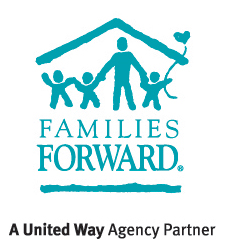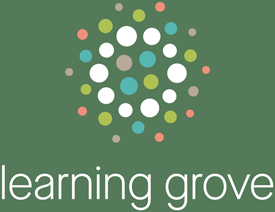
We can do better!
Perhaps there is no other field where the gap between research and practice is wider than that between child development research and early childhood education (ECE). The Breakthroughs in Early Childhood conference will bring in renowned experts from all over the country to provide insights from four emergent research areas.
November 2-3, 2022, Northern Kentucky Convention Center
Learning Grove invites thought leaders, ECE administrators, education leaders, policymakers and others who are interested in making early childhood education the best that it can be. Additional information can be obtained by contacting Tom Lottman, Senior Director of the Innovation Lab, tlottman@learning-grove.org.
Anti-Racist Education in ECE
Takiema Bunche Smith, MPS, MS Ed, President Anasha, LLC; formerly Executive Director, Center on Culture, Race and Equity, Bank Street College of Education.
Kerry-Ann Escayg, Ph.D., Associate Professor of ECE, College of Education, University of Nebraska at Omaha. Author of “The Race” in R.E.C.E.: Reconceptualizing Play-based Learning Through an Anti-racist lens.
Jennifer Neitzel, Ph.D., Executive Director, Educational Equity Institute. Former research and teacher at Frank Porter Graham, UNC-Chapel Hill. She works with state, communities and school districts to create more equitable policies and practices that improve outcomes for all children. Jen will present Let’s Talk: Creating an Anti-racist Space in Early Childhood.
Rethinking Trauma
Kathryn L. Humphreys, Ph.D., Dept. of Psychology and Human Development Investigator, Director of the Stress and Early Adversity Lab, Vanderbilt Brain Institute. Early Childhood Mental Health Emerging Leadership Award in Research, ZERO TO THREE.
Vonda Jump Norman, PhD, is an Assistant Professor in Social Work at the Brigham City campus of Utah State University and is Director of the Trauma Resiliency Project at The Family Place in Logan, Utah. Her research focuses on promoting positive parent-child relationships and the optimal development of children impacted by adversity.
Tina Malti, Ph.D. is a professor of psychology at the University of Toronto, director of the Laboratory for Social-Emotional Development and Intervention, and founding director of the Centre for Child Development, Mental Health, and Policy at the University of Toronto Mississauga. Dr. Malti is an internationally distinguished scholar who has just been awarded the prestigious Humboldt prize which will bring her to Germany for a year. She will present on Young children’s prosociality and the impact of adverse and positive experiences.
Family Engagement
Danielle Perry, Ph.D., Senior Research Associate NYU Metro Center for Research on Equity and the Transformation of Schools. She will present on family engagement as an equity tool.
Anne Henderson, Senior Consultant, National Association for Family, School and Community Engagement, Author, Beyond the Bake Sale: The essential guide to family-school partnerships.
Dana Suskind, M.D., Professor of Surgery and Pediatrics, University of Chicago, author of The Thirty Million Word Gap and Parent Nation: Unlocking every child’s potential, fulfilling society’s promise. Her national Parent Nation Initiative called a “manifesto for America” just launched in April of 2022.
Developmental Neuroscience
Darcia Narvaez, Ph.D., Professor Emerita, University of Notre Dame, author of Neurobiology and the Development of Human Morality: Evolution, Culture and Wisdom. She was recently named in the top 2% of
scientists worldwide.
Marie Arsalidou, Ph.D., Adjunct Professor, York University. Author of “Constructivist developmental theory is needed in developmental neuroscience,” (2016) npj Science of Learning. Dr. Arsalidou will be the featured speaker at the Jean Piaget Society for the Study of Knowledge and Development.
Kimberly Noble, MD, Ph.D., is a Professor of Neuroscience and Education at Teachers College, Columbia University. As a neuroscientist and board-certified pediatrician, she studies how socioeconomic inequality relates to children’s cognitive and brain development. Her work examines socioeconomic disparities in cognitive development, as well as brain structure and function, across infancy, childhood and adolescence. She has funding from the NIH and more than a dozen private foundations, and is one of the principal investigators of Baby’s First Years, the first clinical trial of poverty reduction in the first three years of life. Dr. Noble received her undergraduate, graduate and medical degrees at the University of Pennsylvania. She was the recipient of the Association for Psychological Science Janet Taylor Spence Award for Transformative Early Career Contributions, the American Psychological Association award for Distinguished Contributions to Psychology in the Public Interest, and is a Fellow of the Association for Psychological Science. Her TED talk has received more than 2 million views to date, and her work has received worldwide attention in the popular press.
Loading…
Anti-racist education in ECE
We believe that we are raising our children to be “color blind” when in actuality we are raising them to be “color silent.” ECE is a “first chance” solution to address generational biases. Learn how to build ECE that will create the first generation able to confidently and competently talk to each other about race and celebrate differences.
Rethinking trauma
Researchers are just beginning to recognize that character strengths inherent in families are critical factors in trauma prevention and mitigation. Learn concepts that can transform your implementation of trauma-informed practice.
Family engagement
Perhaps the old adage, “It’s not that it doesn’t work; it’s that it’s never really been tried” applies to family engagement. Learn how to build powerful family engagement that changes the outcomes for all young children by building impactful partnerships with all families especially those families hardest to reach.
Developmental neuroscience
Neuroscience has generated significant insights into the developing brain, insights best understood through developmental theories such as constructivism. Learn how breakthroughs in neuroscience should inform public policy, professional practice, and positive parenting.





